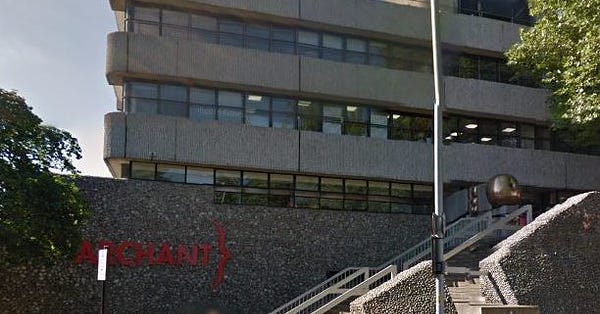Before we get into today’s issue we wanted to say thank you to everyone who has responded to our reader’s survey so far. A lot of you have said really nice things about this newsletter and even though this wasn’t a compliment fishing exhibition, it’s very nice to hear and we really appreciate it.
If you haven’t filled in the survey yet (it’s only seven questions) then you can find it here. We’re going to leave it open for another couple of weeks and then one person will win the entire set of ‘opinionated guides to London’ from Hoxton Mini Press.
If you were anywhere near the newspaper industry in the early 2000s then you would have heard a lot of chat about ‘hyperlocal news’.
The promise of Web 2.0 and its emphasis on the ‘social web’, mass participation and small business models (along with the seemingly endless possibilities offered up by things called blogs and wikis) allowed a lot of media organisations to dream of a bright new future that was powered by the people as well as profits.
Needless to say, this utopian vision did not quite play out like it was supposed to.
As the Web2.0 platforms grew unchecked and created many of the digital monopolies that exist today, the media companies had to ‘pivot’ so much in order to try and keep up with the algorithms that they grew dizzy and then, one by one, collapsed in a heap.
Just a couple of weeks ago, another of those ailing regional press institutions was gobbled up by a giant American holding company and, as a result, London’s local newspaper ecosystem became even more diluted than it already was.
An empire built on mustard
Archant began life in Norwich over 175 years ago. Thanks to backing from Jeremiah Colman (the man behind the Colman’s Mustard empire) the company was able to establish titles like the Norfolk News and the Eastern Weekly Press. From those humble beginnings they grew quickly, and by the mid-1990s they’s grown so large that they earned themselves the nickname ‘The News Corp of East Anglia’.
At the end of 2003, Archant must have been bullish about the future of local media, because they bought up 27 newspapers from Independent News & Media in a deal worth around £62 million. Those titles included papers like the Hackney Gazette, Islington Gazette, the East London Advertiser, the Barking & Dagenham Post, the Bexley Times and the Bromley Times.
A few years later the ‘new media’ panic began to set in at Archant and they launched “an all-new news and information website for London” called London24. That limped along for five years before it closed and all four of its staff were put on notice (although their Instagram account survives).
Four years later and less than six months into lockdown, Archant was bought out by a private equity firm, with the chairman citing “the effect of the coronavirus crisis on advertising and circulation revenues” (nothing to do with the fact that, in 2018, they’d made a pre-tax loss of £7.6m). The company’s £50m pension fund deficit was taken over by the government.
In May of last year, Archant’s new CEO told the Press Gazette that she didn’t want “to be the CEO that shuts titles,” because she didn’t want kids coming up to her in her twilight years to ask her “What’s a regional newspaper?”.
Eight months later Archant closed two-thirds of its newsrooms, saying that staff wanted to work from home. Then in January they put themselves up for sale again.
Earlier this month, it was announced that Archant had been bought by Newsquest.
“Quality local journalism”
Newsquest is a subsidiary of the enormous US publishing firm Gannett, who are the largest newspaper publisher in the United States and the owners of USA Today.
Newsquest already own a couple of hundred UK titles, but the ones we’re most interested in are their handful of London publications: This is Local London, News Shopper (which covers South East London), Richmond and Twickenham Times, Surrey Comet, the Sutton and Croydon Guardian and the Wimbledon Times.
The websites for these papers are uniformly awful.
They are built on barebones, outdated templates that break easily (see below) and are plastered in banner ads and popups that demand you answer a survey before you can read an article.
If you can get through to the content you’ll find it’s largely made up by Google-friendly ‘stories’ that give hints towards today’s Wordle answer or alert you to “Large PS5 stock drops expected in April”. The author of that PS5 article actually has the job title ‘SEO journalist’ and if that’s something you aspire to then you’re in luck, because Newsquest are looking for more SEO journalists to help them “build rank and authority on search as the company invests in the future of its industry-leading digital coverage.” The salary is £23k a year and, hilariously, they would love it if you could write shorthand at 100 words per minute.
Other articles are submitted by Facebook community reporters who alternate between writing up local court rulings and throwing together tortured listicles that rely heavily on TripAdvsor reviews in order to tell you where the “best Mother’s Day brunch venues in south east London” are.
None of this has stopped Archant’s CEO claiming that Newsquest delivers “quality local journalism” and that by “bringing the best of Archant and Newsquest together we have the opportunity to lead the way in building an exciting future for regional media, a future that speaks to growth, innovation and sustainability.”
Some of Archant’s staff however are less optimistic about the future:


To be fair there is no mention of restructuring or redundancies in Newsquest’s press release. But they’re not saying there won’t be any either, and Newsquest’s finances aren’t quite as rosy as they might seem at first glance. As the media commentary site Flashes & Flames points out “the majority of the company’s free cashflow has been devoted to paying down its pension fund deficit”.
But even if you’re not an Archant employee there’s still plenty to be concerned about here.
Where does this leave us?
Even before Newsquest’s acquisition, most local newspapers were owned by a small group of companies. Now 80% of the local newspaper market in the UK is controlled by just five companies, with Newsquest owning 30% of them. The three biggest companies combined (Newsquest, Reach and National World) control almost 70% of all local newspaper circulation.
What does this mean for London?
Well Reach Plc are the people behind the click farm that is MyLondon (also known as “the most visited online London news title”), and National World are the proud owners of the relatively new London World, which launched back in September with a promise to represent all of the “different cultures and communities, which make London the brilliant melting pot it is,” and who seem to be trying to carve out a space for themselves as being a little less offensive than MyLondon.
The good news is that there are some quality local newspapers out there that are managing to survive without resorting to writing about Wordle.
The South London Press nearly went under a few years ago but was saved by a leaflet distribution firm that operates out of an industrial estate in Hainault. We’re not sure how that works, but it does, and we’re very grateful for it. Also south of the river is Southwark News which has been independently run since it started life in 1987 as an A-4 photocopied sheet of paper.
In North London there’s the Camden New Journal, another independent title that has been running since 1982 and which has won multiple awards and broken national stories in that time (its sister paper, the Islington Tribune is also very good).
But these papers do not have large marketing budgets and neither do they employ ‘growth hackers’ or ‘data scientists’, and so every time there is more consolidation in the industry their position becomes even more precarious.
Our only hope is that there are still some “quality journalists” within these giant organisations who will take this opportunity to jump ship and start something of their own.
That’s exactly what Joshi Herrmann did when he left the Manchester Evening News to set up The Mill, before following that up with the Liverpool Post and the Sheffield Tribune (and, yes they are all Substack publications and, no they didn’t pay us to say that).
Hopefully the success of those titles (and even the fact we’ve stuck around for a year now) proves that there is a place for this kind of writing and that maybe some of those lofty ideals of the noughties haven’t been completely wiped off the map.
News bits
Cressida Dick will stand down next month when she will be temporarily replaced by her deputy, Sir Stephen House, until a new Met chief can be found (maybe they should just do what they did with Have I Got News For You? and have a rotating set of guest Commissioners).
Meanwhile, another probe has been launched, this time to look into Sadiq Khan’s handling of Dame Cressida’s resignation. The investigation will look to “establish the facts and circumstances surrounding Dick’s decision to step aside, whether due process was followed and any recommendations on how accountability may be strengthened.”
A few weeks ago we mentioned the two brothers (one twelve-years-old, the other thirteen) who had been accused of multiple burglaries at top hotels including Claridge’s and the Four Seasons. Well, they were due in court this week, but neither of them turned up and there is now a warrant out for their arrest.
File this under ‘Great ideas that shouldn’t have taken this long to figure out’: The Greater London Authority has developed a revolutionary new digital tool “which maps planned utility work and local authority streetworks” to see if there’s any overlap. The end result being that a road doesn’t have to be dug up three separate times if the water company, gas company and council all need to do something to it.
Next time you call an Uber you might end up in a Tesla Model 3. A hundred of the cars are entering the private hire network this month thanks to the mayor’s Energy Efficiency Fund (MEEF)
The London Games Festival (“the global celebration of video games and interactive entertainment”) begins on Friday with a free festival in Trafalgar Square followed by ten days of events that include the BAFTA Games Awards and the WASD showcase at Tobacco Docks.
We know they’ve used hawks to scare off pigeons at Wimbledon and Trafalgar Square before, but now Westminster Council have got themselves a hawk to patrol the streets of Soho. Apparently the bird will “be encouraged to stop seagulls nesting on and around Kemp House, an apartment block in Berwick Street.”
It’s hard not to be a little impressed by this two bedroom flat in Archway, which has managed to squeeze a “private swimming pool, sauna and steam room” into its lower ground floor.





